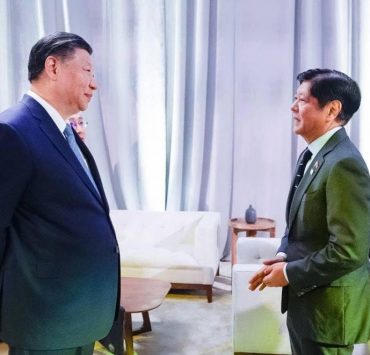Craftsmanship to achieve our potential as a nation

The country’s problems are extensively dissected and discussed. There are a hundred and one causes—from our colonial past, our damaged culture, our warped values, the disconnect between our Christian words and worldly actions, to our fragmented geography and tribalism, the system of too much democracy and malgovernance, the death of civic consciousness and social duty.
There is one thing that runs through all these that keeps us from fulfilling our potential as a nation. It is the absence of craftmanship. Craftmanship is simply a dedication to a craft, a vocation, or a passion.
When one hires a plumber, he is so into pipes that one can be assured that all leaks are fixed and water flows from and to where it should. It comes with a reasonable cost. Teachers, whether in private or public schools, devote energies to learning and to the transmission and guidance of knowledge to those whose minds and bodies are under their care and watch.
I recall the dedication of a Japanese housekeeper who was on his fours cleaning the last spot in the room. I remember the attention to detail of a Korean handcrafter of an eyeglass lens with precise measurements in the millimeters. You have your experiences.
In the business sphere, we see the establishments that pay attention to the smallest details, and products that are meticulously thought out and made to last (hence our frustration with online things for the purpose of expediency and price).
We admire the fearlessness of an advocate for freedom to the point of self-sacrifice. Our minds agree when politicians speak and act truth to power. Our hearts swell up when we listen and see beauty and art on stage and in everyday life. We universally subscribe regardless of our diverse views on many other matters.
It can be said of all professions and jobs—contractors ensuring projects are completed on time and at cost, police officers upholding their duty to serve and protect—not for citizens to doubt and to fear those in uniform. Lawyers, doctors, and accountants who are loyal to clients; public servants with sworn duty of fidelity.
There is a unity between a person’s talents and skills and what he does for a living. There is integrity in where he is and what he aspires for. There is craftsmanship—we know it when we see and experience perfection as a way of doing things.
And this is the acute issue we face today—our inability to get things done. We know what ails each sector or institution. Enough road maps and action plans are on desks and shelves. It is the human agency that is the missing factor without which nothing can come into play.
Name one industry, list the top three challenges, and match the corresponding solutions. Then drill down on what exactly needs to be done. The last is to identify and support the person or team to start, shepherd, and complete the task. It is plain to see and simple to say but almost impossible to achieve.
The idea and imperative of craftmanship comes in—the passion and dedication, the persistence and patience. It is only with such traits that mastery of a task can happen. Without that, we are all mediocre. It starts in our homes when discipline is taught as much as eating and traveling with kids. It continues in schools with the ability to sit down, focus to complete assignments dutifully day in and day out.
In workplaces, the capacity to labor away to meet the task at hand remains the single most important factor of success in every sense of the word. Self-mastery leads to task mastery.
The way forward is to do a refounding, a rethinking of what is essential. Take red tape—why does it exist? Why is it pervasive? And why is it difficult to cut? A questioning process can lead to realizations on the purpose of a rule or a document, the objective of a transaction, and reconstruction from the ground up. Back to basics is something we know about.
Craftmanship applied in this way can change our society for the better. Elsewhere in the region and the world, it is the abundance of craftsmen doing many sorts of different things that contribute the most value to a society which can then function and improve the lives of everyone.
Geronimo L. Sy is former assistant secretary at the Department of Justice.

















